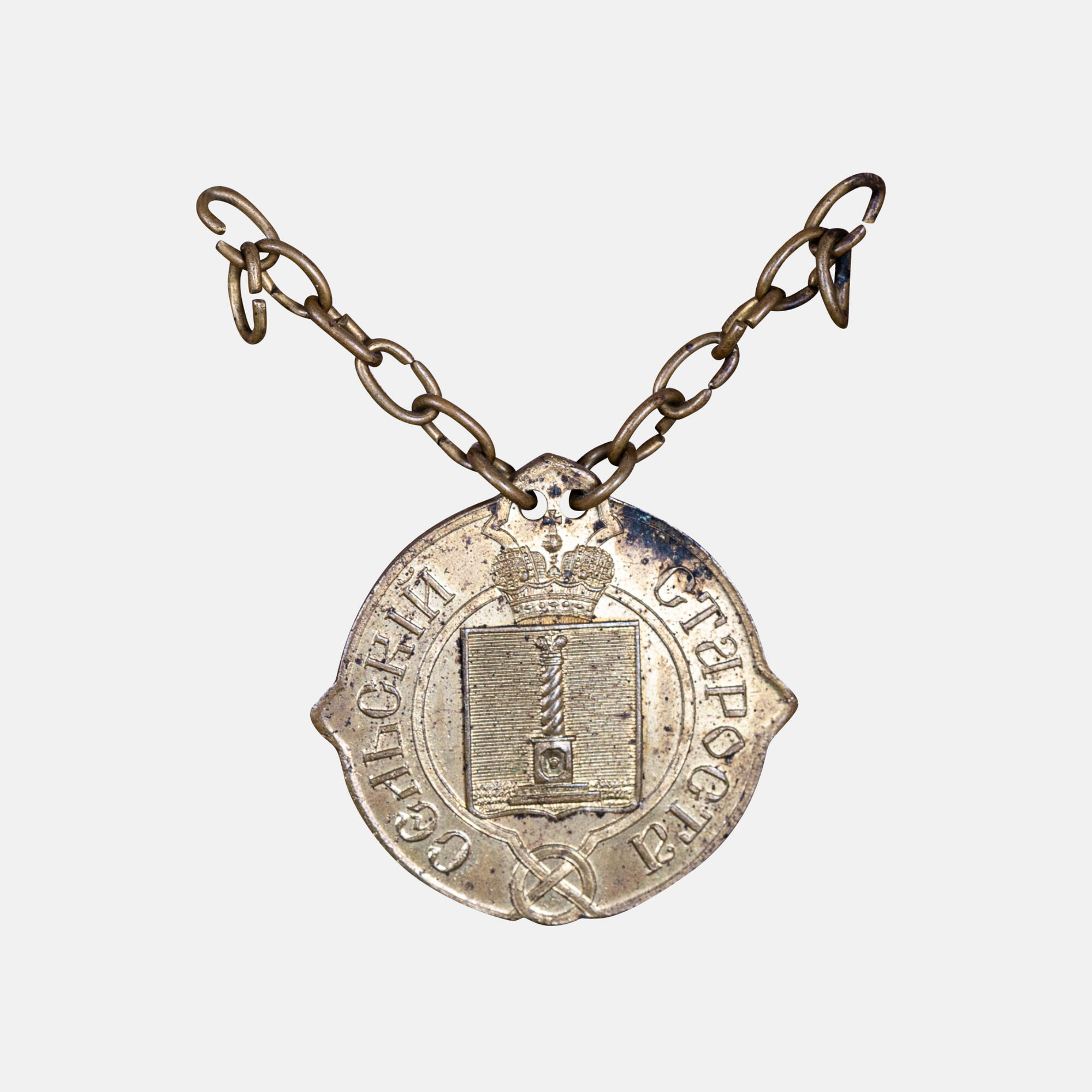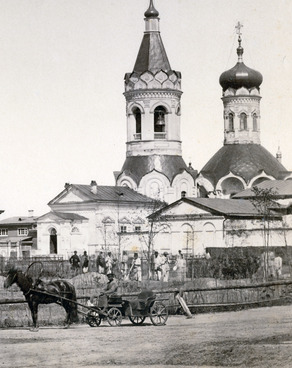The insignia of the village elder (starosta) was established by a special decree of July 27, 1861. It was made of light bronze and featured the front part of the coat of arms of the governorate in which the corresponding village was located. Officials wore round medals like this while on duty. Among other things, the insignia designated the job title and could be worn either together with the official attire or independently, however, wearing it was mandatory.
The obverse of the medal is encircled with a low-relief rim, and in the center is the coat of arms of the Simbirsk Governorate, topped with an imperial crown. At the bottom, the inner relief rim is intertwined with the outer one. Along the circumference, there is a relief inscription: on the left — “VILLAGE”, on the right — “ELDER”. The reverse side of such insignia featured the monogram of the reigning emperor and the date of the beginning of the reforms during which this position was established. The reverse of the presented medal is encircled with a low-relief rim. In the center, there is the monogram of Emperor Alexander II, topped with a crown. A relief inscription runs along the circumference: on the left — “FEBRUARY 19”, on the right — “1861”. At the bottom and on the sides, the inner relief rim is intertwined with the outer one.
The starosta was elected by the skhod (village assembly) for three years. He convened and dissolved the skhod, carried out its sentences, monitored the integrity of the borders, the condition of roads and bridges, the proper tax collection, the execution of duties, the preservation of law, order and public peace, and other things. For minor offenses committed by persons under his jurisdiction, the starosta had the right to subject the guilty party to community service for up to two days, a fine of up to one ruble, or even arrest, albeit for no longer than two days. In administrative matters, the starosta was subordinate to the volost elder and the zemstvo chief. As for police matters, he was subordinate to the police officer, district police officer, district ispravnik and others. At the same time, he depended on the community, which elected him, controlled his work and determined his salary.

